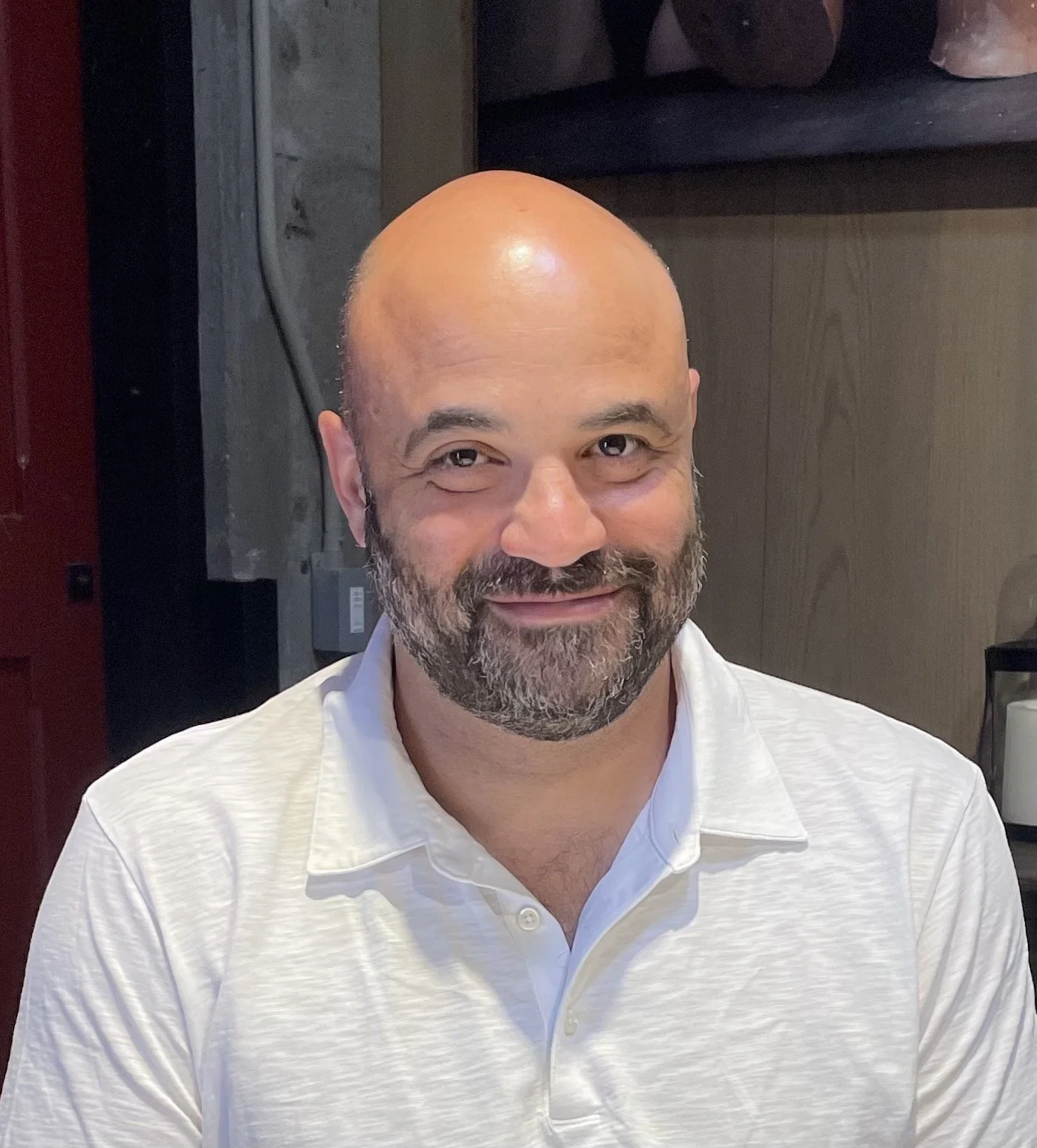Maisha talks to Hue Rhodes of FRIDAY about his vision for the future of privacy
MAISHA: Happy Second Saturday! I hope you’re scrolling with a warm cup of something this morning! If you’re anything like me this time of year you’re searching and shopping your heart out (not always for either people). So what your fingers have is your credit card number committed to memory. After I press “complete order”, I always wonder for a split second if my information or that last weird thing I Googled will ever show up somewhere it shouldn’t (my twin nightmares are the Washington Post or as some weird audience model that only points me to the most expensive shit).
In comes Hue Rhodes, founder of FRIDAY to give me visions of never having to worry about whether I was too stupid to keep myself safe or from being profiled by The Algorithym. This is not just a good thing for consumers; Hue knows the data privacy market well and believes there’s a way to monetize turning our existing predatory model on its head and deliver a better experience for people like you and me.
This interview was edited for brevity.
MAISHA: Tell us about your company FRIDAY. What’s the big idea behind what you built?
HUE: I started working in data protection about 13 years ago, just when the area was emerging. In 2012, Experian bought the Brazilian credit bureau Serasa for $1.5b to enter the Brazilian market but Experian ran into a problem. In Brazil, the consumer has the right to dictate which credit bureau holds your data and they can force a switch at any time based on the company they trusted. That model stayed with me forever, but it was impossible to do in the U.S., until I read the details of the California Consumer Privacy Act (CCPA). People could finally get the full value and control over their data without doing a ton of work or having a less enjoyable experience online.
FRIDAY is an app and platform that helps you exercise your personal data and privacy rights so that no one is selling it without your permission. We will build tools to help you lend your data to who you want for your personal benefit: loyalty points, discounts, personalization on Netflix or Hulu. We empower consumers to enjoy those benefits without the risks of turning over a copy of yourself (which currently happens). Companies access only the relevant information for a set period of time. A company accepting a FRIDAY log-in to represent you means they will get a more accurate story, because it comes from you, about how to serve you well.
Hue Rhodes
How does FRIDAY work?
The best way to think about FRIDAY is like a hotel key card. You walk into a hotel room and it's dark. You place the key card into a slot and there is a recognition that “this person has the right to access power for their experience”. When it's time to leave you remove the card. We’re working to allow you to do the same with your personal data.
You would “show up” to Hulu and as you log in you're indicating “hey, Hulu I'm here to trade. I want to have a great experience and here's my card”. It's the best data for them to use because it's not a composite guess. When you're done with Hulu, you say “thanks that was fun” remove your card and take your data with you.
What’s wrong about our understanding of our relationship to our personal data?
Most people don't have home security systems but most people have blinds and shades. We have an expectation that people won’t just peer into our homes, that we have a right to some privacy. Online is the only place where we assume we have to pay someone to make sure they don’t look in on us. It’s an inverted model.
It’s not that companies don’t need the data; they need it while interacting with you, they just don’t need to keep it, and they shouldn’t be copying it everywhere, trading it with other companies and putting you at risk.
You brought on Omar Johnson of Opus United as an advisor and investor. What do celebrities have to do with data privacy?
A good number of start ups misread how to engage celebrities. This is a group very aware of the monetization of their image and personal information. So it's a natural group to engage.
Strategically, we are trying to reshape your relationship to your personal data and that requires change at all levels. If Billie Eilish tweets: “Where the fuck is my data,” she could pressure a company to engage her data in a specific way. Since a company cannot have a special data policy for Billie Eilish, and a separate policy for everyone else, it's a tremendous point of leverage.
Your company had a partnership win recently, what about that agreement sets FRIDAY apart in its profitability?
For FRIDAY to get your information back to you, I really need to know that you are you and not some other Maisha Leek. It requires more than just checking your email log-ins. That level of verification can cost up to $5 per individual. We entered a preferred partnership with INCODE (backed by JP Morgan, Coinbase Ventures, 3L Capital, DILA Capital and FJ Labs; on Dec 7, 2021 announced $220m Series B raised) where we avoid those costs and have their strategic engagement. It's a game changer for our investors and for our profitability.
This all makes me fired up. Especially as I think about my browsing and shopping habits at this time of year. When will we do something about it?
Disinformation is like listening to a sad song; you know it's making you feel a certain way. There’s a ton at stake in the 2022 and 2024 elections, and I think on the other side of those experiences, the American public will have had enough and demand change. People are aware that they are being managed and that comes acute around election time. We will see another wave of polarizing media and distortion and hyper stimulation and triggering of people based on what is true about them. There are people camping out in Vegas waiting for JFK Jr. right now. No matter where you sit on the political spectrum people will feel this inability “to reach” someone in their personal circle and that loss will demand action.
People are waking up to the fact that organizations are modeling you, making decisions about you, not sharing those decisions with you, and potentially even diagnosing you in a way that would be intrusive in another arrangement. For example, if a therapist talks to you, comes to conclusions about you and then uses that against you they would lose their license. That’s what's happening in our elections and that’s what people will rise up against.
Now whether or not people feel like there is something they can do, it’s up to us at FRIDAY to give them a reasonable way that they can be a normal person and get out, mix it up, and be a person in the world and still retain some of their dignity. There are things people can do now, but the burden is on you to deal with all of the intrusions. You’ve got to get password managers, etc and the work is overwhelming because no one is helping.
Speaking of help, what’s ahead for you and how can we be helpful?
We’re just getting started, and I want to build this business with investors that share my values: privacy is a fundamental right and a matter of dignity. This business takes guts because we are talking about wholesale change in our relationship with this version of data use in technology. People who are up for both are hard to find so I would love introductions to bold investors and social impact investors. You can reach out to me at hmrhodes@gmail.com.


